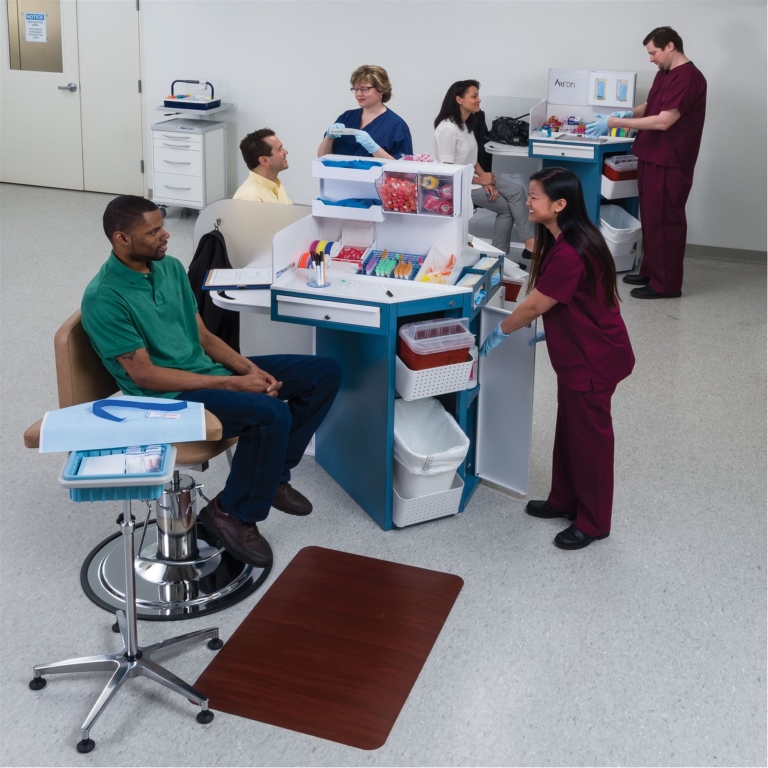ultimate Guide to Excelling in Your Phlebotomy Review Exam: Tips, Resources, & Practice Strategies
If you’re preparing for your phlebotomy review exam, you’re probably feeling a mix of anticipation and pressure. This crucial step not only validates your skills but also opens doors to rewarding healthcare careers. To help you succeed, we’ve crafted this thorough guide packed with expert-tested tips, valuable resources, and effective practice strategies to elevate your exam performance and build your confidence.
Introduction
Phlebotomy review exams assess your knowledge of blood collection procedures, safety protocols, patient interaction, and laboratory standards. Excelling in this exam requires thorough preparation, strategic study techniques, and real-world understanding. Whether you’re a new student or a seasoned professional re-certifying, mastering the exam content is essential for success and career advancement.
Why preparing Effectively Matters
A well-prepared candidate not only scores higher but also feels more confident in clinical practice. Effective preparation reduces test anxiety, helps you retain critical data, and ensures you’re ready to handle real-world scenarios confidently. The key is to combine study resources,practice strategies,and practical tips into a personalized preparation plan.
Key Tips for Excelling in Your Phlebotomy Review Exam
1. Understand the Exam Format and Content
- Review exam guidelines provided by your certifying body (e.g., AMT, NHA, ASCP).
- Familiarize yourself with common question types, including multiple choice, scenario-based, and practical skills assessments.
- Identify core topics such as blood collection techniques, infection control, patient safety, and specimen handling.
2. Develop a Structured Study Plan
- Allocate specific days to cover each topic area.
- Set realistic goals, such as mastering 2-3 chapters weekly.
- Incorporate review sessions to reinforce your memory.
3. Use Reliable Resources
select high-quality study materials to maximize your learning experience. Recommended resources include:
- Textbooks: “Phlebotomy Essentials” by Elizabeth Clark or “The Phlebotomy Handbook.”
- Online courses and tutorials: Platforms like Coursera, Udemy, or specific phlebotomy training sites.
- Practice exams and flashcards: Use apps like Quizlet or official practice tests from certifying agencies.
4. Practice Realistic Scenarios
Hands-on practice or simulation exercises help solidify your skills and prepare you for practical questions on patient interaction and blood collection techniques.
5. Focus on Weak Areas
Identify your weakest topics through self-assessment tests and dedicate extra time to improve these areas.
Effective Resources for Phlebotomy exam Preparation
Online Study Guides & Practice Tests
| Resource | description | Link |
|---|---|---|
| American Society of Phlebotomy Technicians (ASPT) | Official practice tests and study materials | phlebotomy.com |
| Quizlet Flashcards | Custom flashcards created by students and professionals | quizlet.com |
| Coursera Phlebotomy Courses | Comprehensive online courses from experienced instructors | coursera.org |
Books & Study Guides
- “Phlebotomy Essentials,” 4th Edition
- “The Phlebotomy Handbook,” Arthur James
Practice Strategies to Boost Your Confidence
1. Take Timed Practice Tests
Simulate exam conditions to improve speed and accuracy. Focus on managing your time efficiently across questions.
2. Review Rationales for Each Answer
Understanding why answers are correct or incorrect deepens your knowledge and helps prevent mistakes.
3.Use Mnemonics & Memory aids
Memory tricks can help recall procedures, safety protocols, and terminologies effectively.
4. Join Study Groups or Forums
Collaborate with peers to exchange tips, clarify doubts, and stay motivated.
5. Maintain Good Health & Rest
A rested mind retains information better. Prioritize sleep, nutrition, and stress management during your study period.
Practical Tips for Day of the Exam
- Arrive early to reduce anxiety.
- Bring necessary identification and materials as instructed.
- Read each question carefully and manage your time.
- Stay calm, confident, and focused.
Case Studies: Real-World Insights
Case Study 1: Overcoming Test Anxiety
Jane, a phlebotomy student, struggled with exam anxiety. By practicing timed mock exams and deep-breathing techniques, she improved her confidence and achieved a passing score.
Case Study 2: Improving Practical Skills
Tom had difficulty with vein selection. Through targeted practice and mentorship, he enhanced his technique, which translated to better performance on both written and practical sections of the exam.
Benefits of Excelling in Your Phlebotomy Review exam
- Certification enhances credibility and employability.
- Validation of your technical skills improves patient safety.
- Prospect for career advancement and specializations.
- Increased confidence in clinical practice.
Conclusion
Preparing for and excelling in your phlebotomy review exam is an achievable goal with the right approach. by understanding the exam format, utilizing top resources, practicing efficiently, and maintaining a steady study routine, you can increase your chances of success substantially. Remember, consistent effort and a positive mindset are key. Use this ultimate guide to navigate your preparation journey with confidence, and soon you’ll be celebrating your certification as a skilled and qualified phlebotomist.Best of luck!
